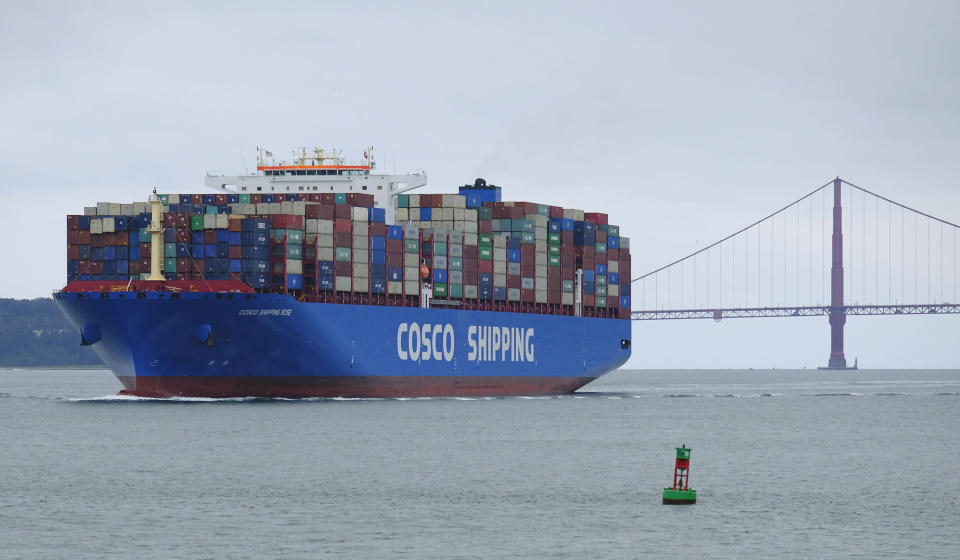Trump’s trade war is suffering mission creep
Pop quiz: What is the purpose of President Trump’s trade dispute with China?
If you’ve been following Trump’s remarks on the matter, you might think it’s to hurt China’s economy. But that’s not it.
You might also think it’s to persuade firms that manufacture goods in China to move production to some other country, like Mexico or Vietnam. But that’s not the point, either.
The purpose of Trump’s trade war is to make the U.S. economy stronger. Every facet of the trade war—protective tariffs that make imports more expensive, punitive measures against Chinese firms such as Huawei, bailouts for U.S farmers—is counterproductive unless it improves growth, employment and living standards here in the United States.
By this basic standard, the trade war is suffering mission creep, like a military deployment that starts as a peacekeeping effort and morphs into a shooting war. The trade war has now become less about making America better off, and more about harming China. “I say openly to President Xi … China will be hurt very badly if you don’t make a deal,” Trump tweeted on May 13. “Many tariffed countries will be leaving China. There will be nobody left in China.”
Trump obviously wants to inflict pain on China as leverage to win concessions favorable to the United States. But it now seems possible China won’t play along. Chinese President Xi Jinping, for instance, has begun talking publicly of prolonged conflict with the United States on trade, as is preparing his country for struggle. If that happens, then what?
It’s probably true that the trade war is causing China more economic pain than the United States. But it is still hurting the U.S. economy. The Trump tariffs on Chinese imports amount to a tax of around $60 billion a year—paid by American consumers and producers, not China, as Trump keeps mistakenly insisting. The Trump tariffs are now at levels that cost the typical US household $831 a year in extra taxes and lost economic output, according to the New York Federal Reserve. Those are taxes for which Americans get nothing—no improved roads, no extra teachers or fighter jets, not even a bridge to nowhere.
Relocating manufacturing... but to the US
Trump thinks that if his tariffs make imports more expensive, companies that produce in China will move manufacturing to America, to avoid the tariffs. But hardly any companies are doing that. What they are doing is moving or considering moving to other low-cost countries. GoPro, for instance, recently decided to move production of cameras bound for the United States from China to Mexico. And a recent survey of U.S. businesses operating in China found that 41% had relocated or were planning to relocate manufacturing facilities outside of China. Most were targeting other Asian nations. Only 6% said they’re considering moving back to the United States.

Trump has taunted China for losing companies in this manner, as if it’s a win for him. But it’s not a win for the United States. At best, companies moving their supply chains around to avoid Trump tariffs are minimizing losses. They’re not creating any new American jobs, or adding to profits, or cutting prices for U.S. consumers.
There’s also the growing likelihood Trump and Xi personalize the dispute, with neither willing to make concession for fear of seeming weak. That could lock in losses both sides are enduring, and perhaps make them worse. On the U.S. side, the losers so far include farmers who can no longer sell crops to China, on account of retaliatory tariffs, big exporters like Caterpillar and Boeing and smaller companies vulnerable to rising import prices. Shoe makers, including Nike and Under Armour, recently warned Trump that new tariffs he wants to impose on consumers goods from China would be “catastrophic.”
Markets still seem to be betting the two sides will end the current impasse and make some kind of deal, if only because Trump can’t effectively run for reelection in 2020 if he’s hurting farmers, shoe buyers and assembly-line workers building products for export. But that assumes Trump remembers why he started this war in the first place. It’s becoming less clear he does.
Confidential tip line: rickjnewman@yahoo.com. Encrypted communication available. Click here to get Rick’s stories by email.
Read more:
What GM wants from Trump on trade
This week in Trumponomics: Tariffs bite
Trump’s low threshold for stock-market pain
How Trump is blowing it with voters
Rick Newman is the author of four books, including “Rebounders: How Winners Pivot from Setback to Success.” Follow him on Twitter: @rickjnewman
Read the latest financial and business news from Yahoo Finance
Follow Yahoo Finance on Twitter, Facebook, Instagram, Flipboard, LinkedIn, YouTube, and reddit.

